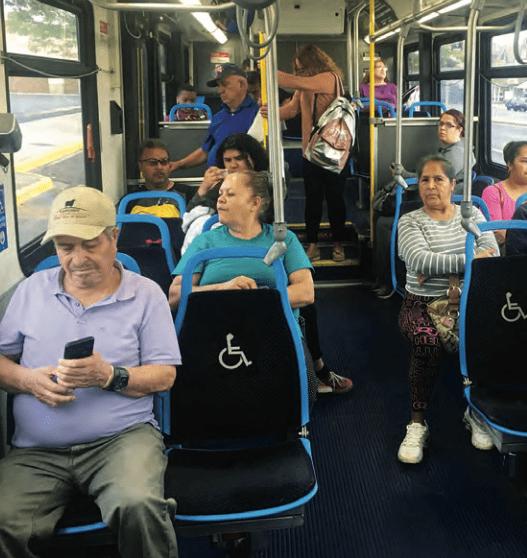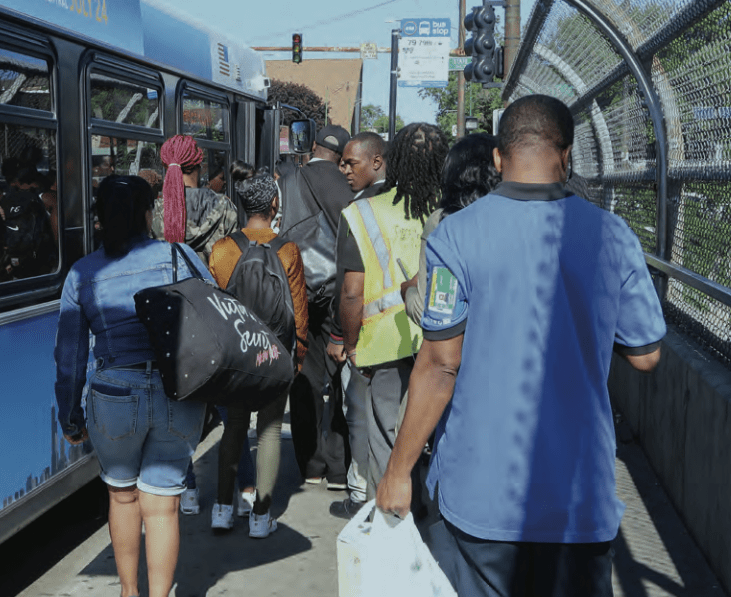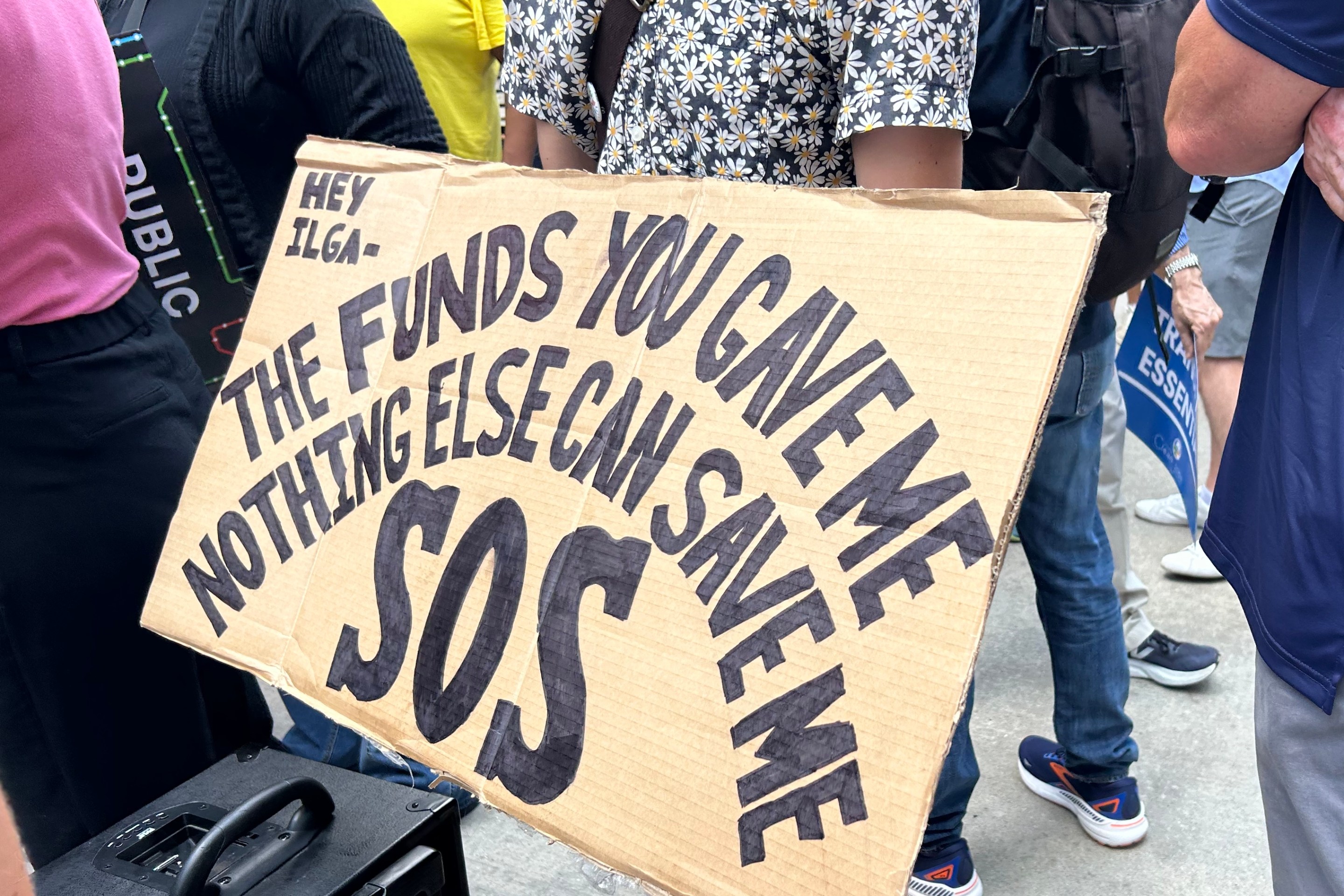During the mayoral election, Lori Lightfoot promised to help lower CTA, Metra, and Pace fares for residents at or below the federal poverty line, similar to the Seattle area’s reduced-fare program. “I support making transit affordable for those who are least able to afford it and most likely to depend on transit to travel to work, school, conduct errands, or receive medical services,” she said.
The new Active Transportation Alliance report "Fair Fares Chicagoland: Recommendations for a More Equitable Transit System," co-authored by Streetsblog writer Lynda Lopez along with Active Trans advocacy manager Julia Gerasimenko, provides data that should encourage the mayor to follow through on that campaign promise. The study was funded by a grant from the TransitCenter foundation.

Active Trans notes that for lower-income residents who don't own cars, transit is crucial for getting to jobs, school, medical appointments, and retail. But as it stands, the region doesn't have an income-based reduced transit fare program, only discounts for people with disabilities, students, seniors, and military personnel. The group's research found that the cost of transit discourages people from looking for work, going to doctors' appointments, and visiting friends and family.
"To create a transportation system that allows everyone to freely move around our region, elected officials and transit agency leaders must act now to create a more equitable fare structure," the report states. "The benefits of accessible, affordable public transportation cannot be ignored, and we believe there is a great need for even more public subsidies to provide equitable fares and increased service to combat some of the biggest issues facing society — from climate change to segregation and institutionalized racism and income inequality."
The study argues that the current fare structure is not equitable because it particularly burdens "people who have historically been most marginalized by systemic racism and income inequality." It notes that offering reduced fares and improving mobility for lower-income residents and people of color would help them access work and educational opportunities, as well as mitigating the problem of food and retail deserts.
Active Trans pointed to a recent MIT report that found that lower-income study participants who received a 50 percent discount on transit took about 30 percent more trips, and more trips to health care and social services, than those who didn't receive the discount.
Recommended strategies in the report include:
- Creating a discounted fare program
- Reassessing the farebox recovery ration (state law currently requires the transit agencies to fund 50 percent of their operations costs through fares; it may be necessary to change this policy to accommodate reduced fares)
- Integrate fare collection to encourage transfers between CTA, Pace, and Metra
- Test the South Cook [Metra Electric and Rock Island] Fair Transit Pilot, which would increase frequency and lower fares on these South Side lines
- Decriminalize fare evasion and offer alternatives to fines such as community service plus enrollment in a reduced-fare transit program
- Implement fare capping, so that those who can't pay the cost of a pass upfront won't be penalized by paying a higher total
- Free fares for youth under age 19 who qualify for free or reduced lunch programs
The study found that a 50 percent discount for lower-income Chicagoland residents could save them $630 on CTA fares over one year, $630-840 on Pace fixed-route service, and $696-1,650 on Metra. Having this additional money in their savings could help them weather a financial emergency.
Active Trans is trying to build political support for these initiatives, which will be helpful in convincing the transit agencies and local politicians to find a funding source. The fact is, providing lower-income people better access to transit and mobility will contribute to better outcomes for employment, education, health, and public safety, which will save money for society in the long run. Even fiscal conservatives should be able to understand that's just common sense.
Read the Fair Fares report here. To get involved with the campaign for a more equitable fare structure, email julia[at]activetrans.org and lynda[at]activetrans.org.





